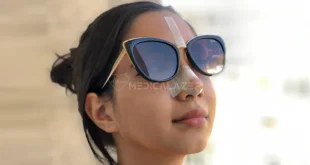Sneezing after rhinoplasty can be a concern for people because the forceful expulsion of air during a sneeze can potentially put stress on the delicate nasal structures that are healing after surgery. Rhinoplasty involves reshaping the bones and cartilage of the nose, and the tissues need time to heal and stabilize.
Here are some reasons why sneezing after nose surgery might be a concern:
- Disruption of Healing Tissues: Sneezing can create sudden pressure within the nasal cavity, which may disrupt the healing tissues, especially if the surgery involved modifications to the nasal bones and cartilage.
- Risk of Bleeding: Sneezing could lead to increased blood flow to the nasal area, which may raise the risk of post-operative bleeding.
- Swelling and Bruising: Excessive sneezing might exacerbate swelling and bruising, prolonging the recovery period.
- Stitches and Incisions: Sneezing might put a strain on any internal or external stitches or incisions, potentially affecting wound healing.
- Dislodging Nasal Packing or Splints: In some cases, nasal packing or splints are placed inside the nose during rhinoplasty to support the nasal structures. Sneezing may dislodge these materials.
While it is essential to be cautious about sneezing after rhinoplasty, it’s important to remember that occasional and gentle sneezing is a natural reflex and cannot always be entirely controlled. Most surgeons will provide patients with instructions on how to handle sneezing during the initial recovery period. Some tips they may recommend include supporting the nose, sneezing through the mouth, or using saline sprays to keep the nasal passages moist.
When Can I Sneeze After Rhinoplasty?
After rhinoplasty, there is no specific timeframe for when you can safely sneeze again. However, it is recommended to sneeze with the mouth open during the first weeks after the nose job.
Why Am I Sneezing So Much After Rhinoplasty?
Experiencing increased sneezing after rhinoplasty is not uncommon, and it can be attributed to several factors during the recovery period. Some potential reasons for increased sneezing are nasal irritation (due to surgical procedure, tampons and internal splint), dry nasal passage, swelling and healing, changes in airflow, and reduced mucociliary clearance.
How to Avoid Sneezing After Rhinoplasty?
How to not sneeze after rhinoplasty? How to stop yourself from sneezing after rhinoplasty? Avoiding sneezing completely after rhinoplasty is not possible since sneezing is a natural reflex and cannot be controlled entirely. However, there are some techniques you can try to minimize the chances of sneezing or reduce its impact on your healing process:
- Keeping Your Nose Moist: Dry nasal passages can trigger sneezing. Use a nasal saline spray as recommended by your surgeon to keep your nasal passages moisturized and reduce irritation.
- Avoiding Irritants: Try to avoid irritants that can trigger sneezing, such as dust, pollen, strong odors, or smoke.
- Taking Allergy Medications: If you have a history of allergies and sneezing is a common occurrence for you, consider taking over-the-counter allergy medications as advised by your doctor to help control sneezing.
Is it okay to sneeze after rhinoplasty?
Yes, it is okay to sneeze after rhinoplasty. The important tip is to sneeze with the mouth open in the first weeks after rhinoplasty in order to avoid pressure on the healing nasal.
Can sneezing ruin rhinoplasty?
No, sneezing on its own, is unlikely to “ruin” rhinoplasty. However, forceful sneezing could potentially exert pressure on the healing nasal tissues and, in some cases, may lead to minor discomfort or swelling.
Sneezing 2 weeks after rhinoplasty:
Sneezing two weeks after rhinoplasty is a relatively common occurrence during the healing process. At this stage, your nasal tissues are still in the early stages of recovery, and it’s normal to experience some sensitivity and occasional discomfort. Keep in mind that it is still recommended to sneeze with the mouth open to minimize the pressure.
 Medicalazer Online Health and Beauty Magazine
Medicalazer Online Health and Beauty Magazine
